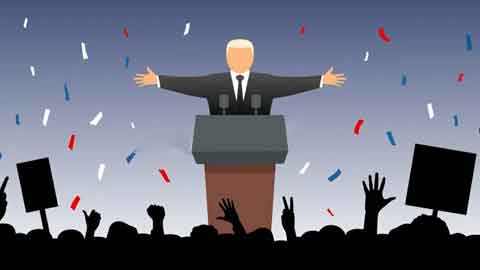Politics ensure that everyone gets their fair share of resources within a society. This is possible because politicians are elected by the people to work for policies that benefit all of them.
The more political participation citizens have, the more they will believe in their governments and be able to generate change. There are many ways to participate in politics, but voting is the most common and important.
1. Social Cohesiveness
Social cohesion is the glue that holds a society together. It’s the ability to trust your neighbors and the government to protect you from life risks and provide upward mobility. It’s also the basis for a shared cultural history that gives citizens a sense of belonging and purpose.
Researchers have studied the importance of social cohesiveness for many years. Le Bon argues that people form groups in order to fulfill their basic psychological needs. Freud supports this idea by arguing that individuals develop unconscious identification with the group.
Research has found that social cohesion can be impacted by factors like terrorism, community involvement, and perceived identity. To strengthen social cohesion, politicians can create more inclusive communities and encourage civic participation. They can also promote educational opportunities that teach about diverse cultures and histories, and work towards equitable distribution of resources and opportunity.
2. A Sense of Identity

People with similar political identities tend to feel a strong connection and commonality with one another. These feelings drive their politics and can influence the way they perceive political problems.
While straightforward bigotry has declined, many resentments remain. These resentments often focus on specific facets of identity, like race, gender, class or culture. Social scientists have shown that these facets can shape politics by making certain beliefs more or less salient, click over here.
Critics of identity politics argue that focusing on differences hinders progress towards equality and further polarizes the country. However, this debate rarely looks at the ways in which Republicans and Democrats have embraced identity politics to reach their bases, particularly white voters in rural and working-class America. This broader context is crucial for understanding why politics are so important to these groups.
3. A Platform for Voice
Politics allows people to voice their opinions and ideas, which can help create laws that benefit society. This can include things like promoting equality between races or genders or preventing discrimination against certain groups of people.
Politics also helps make sure that every person gets a fair chance in life. When a large group of people has a common interest, they can join together to form political parties to represent their views. Politics can then allow these parties to compete with each other in elections to determine who will run the government.
Politics can also be used to create laws that promote or limit growth and progress in a country. This is known as macro politics. It also involves the relations between nation-states, which can be peaceful through diplomacy or violent, such as war.
4. Change
The study of political systems deals with a subject matter that is always changing. Empires have collapsed; world wars radically transformed the nature of international politics; revolutions spread in a way that challenged established authority; new ideologies have swept through political systems with corrosive power; and a host of other changes have taken place at home and abroad.
Change is a natural part of the political process and policy change can be one path to permanent social change. It can be initiated from above, by official government policies translated into laws and regulations, or from below, by initiatives in workplaces, schools, and community groups.
The need for stability sometimes works against open methods of political action and peaceful procedures for resolving grievances, but stable regimes can be very tolerant of certain potentially violent forms of political behavior.
5. Transparency
Transparency has become a key component of many international political reforms, from freedom of information laws to laws for lobby transparency. The idea behind these is that a country’s politics should be transparent and that citizens should be able to know what their government is doing.
The problem is that corruption often undermines these policies and can make them ineffective. In addition to the societal costs of corruption, it also leads to misallocation of resources and distortions of public policy.
Conclusion
In order to stop this, there has to be a level of transparency in politics. This includes not just financial transparency but also a level of openness in terms of communicating with the community. Local governments are realizing that while this can be a significant investment and create extra work for staff, it can result in better governance.